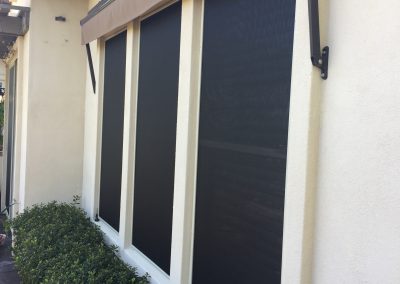When your window screens become damaged or worn out, it’s tempting to ignore the issue or opt for a cheap DIY solution. However, in many cases, window screen replacement in Clairemont is the best choice for maintaining your home’s comfort, safety, and energy efficiency. The cost of replacing window screens can vary based on several factors, and understanding what influences pricing can help you make informed decisions. Here’s a breakdown of the key factors that affect the cost of window screen replacement in Clairemont.
1. Type of Window Screen
The type of screen you choose for replacement plays a significant role in determining the overall cost. There are various types of window screens, and each one comes with a different price tag:
- Standard Mesh Screens: Made from fiberglass or aluminum, these are the most common and affordable options. These screens are durable and easy to install, making them budget-friendly.
- Pet-Resistant Screens: If you have pets that tend to scratch or push against the screens, pet-resistant options are made from stronger, more durable materials like vinyl-coated polyester. These screens tend to be more expensive due to their enhanced durability.
- Solar Screens: Designed to block UV rays and reduce heat entering your home, solar screens are a great option for improving energy efficiency. However, they usually come at a higher price point compared to standard mesh screens.
- Retractable Screens: These screens are designed to be hidden when not in use and extend out when needed. Retractable screens are often more expensive due to their mechanical components and the added convenience they offer.
2. Size of the Window
The size of your window plays a crucial role in determining the cost of window screen replacement. Larger windows will require larger screens and more materials, which can drive up the price. Additionally, custom-sized screens for unique window shapes or sizes tend to cost more due to the additional time and effort needed for fabrication.
3. Frame Material
The frame that holds your screen can vary in material, which also affects the cost. The most common frame materials are:
- Aluminum Frames: Durable and lightweight, aluminum frames are affordable and commonly used for standard window screens.
- Stainless Steel Frames: These are more durable and resistant to corrosion, but they come at a higher cost than aluminum frames.
- Wooden Frames: Though less common, wooden frames can add a traditional touch to your home. However, they tend to be pricier than metal frames due to the material and labor involved.
4. Labor Costs
Labor costs will vary depending on where you live and the complexity of the installation. In some areas, labor may be more expensive due to the cost of living or the availability of skilled technicians. If your window frame requires repairs, such as adjusting the frame or replacing damaged parts, this can also add to the labor cost.
Hiring a professional can save time and ensure that the screens are installed properly, but it’s important to get quotes from several service providers to compare prices.
5. Number of Screens
If you’re replacing multiple screens, the cost per screen may be reduced as bulk work often comes with discounts. Replacing a single screen can cost more due to the initial setup and travel time for a technician. However, if you’re replacing several screens at once, the price per unit tends to drop.
6. Custom Screens
If your home has windows with custom shapes, such as arches or unique designs, the cost of window screen replacement will likely be higher. Custom screens require specialized measurements, materials, and labor, which can increase the overall price. For homeowners in areas like San Diego, where older homes with custom windows are common, this may be an essential factor to consider.
7. Accessibility of the Window
The accessibility of the window can also affect the cost of screen replacement. For example, if you have second-story windows or windows that are hard to reach, technicians may need special equipment like ladders or scaffolding, which can increase the overall cost. In some cases, additional time may be required to safely access and replace the screens.
8. Screen Durability and Brand
The brand and durability of the screen material can affect the price as well. Well-known, high-quality brands tend to come with a premium price. However, investing in a more durable screen may save you money in the long run by reducing the need for frequent replacements.
Average Cost of Window Screen Replacement
The average cost for window screen replacement typically ranges between $100 to $300 per window, depending on the factors listed above. However, the cost may go up or down based on your specific needs. Here’s a breakdown of average prices:
- Standard fiberglass or aluminum screens: $40 to $100 per window.
- Pet-resistant screens: $60 to $150 per window.
- Solar screens: $100 to $250 per window.
- Retractable screens: $200 to $500 per window.
If you’re replacing several screens, you might find a discount for bulk work, lowering the price per window.
When to Call a Professional for Window Screen Replacement
While DIY window screen replacement is an option for many homeowners, hiring a professional is recommended if you’re unsure about measurements, have custom windows, or need help with large or hard-to-reach windows. Professionals can help ensure a proper fit, use high-quality materials, and save you time in the long run.
Contact Mobile Speed Screens for Window Screen Replacement
If you’re looking for reliable window screen replacement services in Clairemont, Mobile Speed Screens is here to help. Our skilled technicians offer affordable and high-quality window screen replacement services, ensuring your home stays comfortable, pest-free, and energy-efficient.
Call us today at 760-525-0990 for a free quote on window screen replacement. We’ll help you choose the right screens for your home and install them with precision and care.

